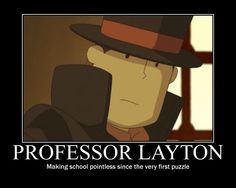
Exploration, Sponsorship, and Learning -Brooke Wagner
What Video Games Have to Teach Us About Literacy and Learning is a book that focuses on 36 principles created by the author, James Paul Gee, which he establishes over the course of 6 chapters. I’m just going to pull out a few of my favorite ideas, though.
In his first chapter, he discusses the idea that games encourage, “exploration, hypothesis testing, risk taking, persistence past failure, and seeing ‘mistakes’ as new opportunities for progress and learning.” This sentence encompasses many principles he addresses later in the book, the importance of which are (in my opinion) irrefutable. The author mostly talks about how these ideas can be applied to education but they should, of course, be a part of any new literacy. Learning requires exploration. It requires testing hypotheses as a part of this exploration, as a part of figuring out how to use the literacy and later how to best use the literacy. The book also points out that learning a new literacy will inherently require mistakes and the consequences of these mistakes cannot be so dire that the learner doesn’t want to continue. Instead, these mistakes should encourage the learner to explore more and create a new hypothesis. He talks about this more when he brings up the psychosocial moratorium where a learner can take risks without real world consequences, somethings formal education often lacks but a good videogame creates.
Another important idea that the book brings up is that of “walkthroughs” and “cheating.” Gee says, “…imagine what a science classroom would look like where learners wrote extensive walkthroughs according to strict norms and debated when and how to use them, debates that became part and parcel of the learners’ growing appreciative systems about what it means to ‘do science (well).’” Later in the book, he goes on to talk about communities and forums and the role they play with respect to videogames, education, and literacy. I think these two ideas go hand in hand. I have no idea how something like a walkthrough would function in a science class but being engaged and collaborating are two incredibly important things when it comes to learning. The book emphasizes this importance of learning in community, something that we’ve talked about as a class and could be linked to the idea of sponsorship. Walkthroughs allow the learners to become sponsor for fellow learners, and sponsorship is a necessary part of learning any literacy.
Lastly, I really liked what the author had to say about what he called decontextualized “skill-and-drill.” He states, “The issue here is not starting children (or game players, for that matter) with easy cases. The issues is starting them with cases that are basic or fundamental in the sense that they lead the learner to discover and practice what are, in fact, fruitful patterns and generalizations.” This also is applicable to any new literacy you might be trying to learn. Though “transfer” can be important and useful when learning a new literacy, it is not always the best way to go about teaching it. Decontextualizing information that the learner will need to use later on can often be harmful and jarring to the learning process. A literacy should build off itself, of basic fundamental ideas.
This book helps us to understand ways in which we can approach learning a new literacy and ways in which the designers of the literacy can help us to do so by looking at how this is done in video games.

 Website:
Website:
One Reply to “Exploration, Sponsorship, and Learning -Brooke Wagner”
This is a great summary of the text. I wish i had the frame of mind when i wrote mine to have really gotten into some one the main ideas of the text. I am much more of an ex-gamer who wishes they had the time and money to continue it. You have a really good grasp on the text and think that you could really apply it to your future occupations.